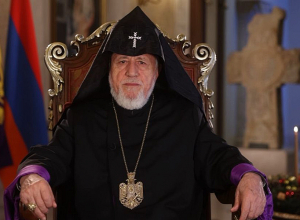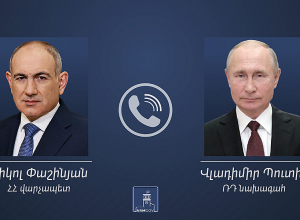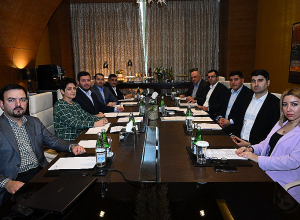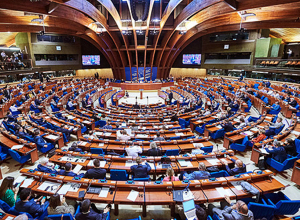“Gender equality will never become an issue in Karabakh” (video)
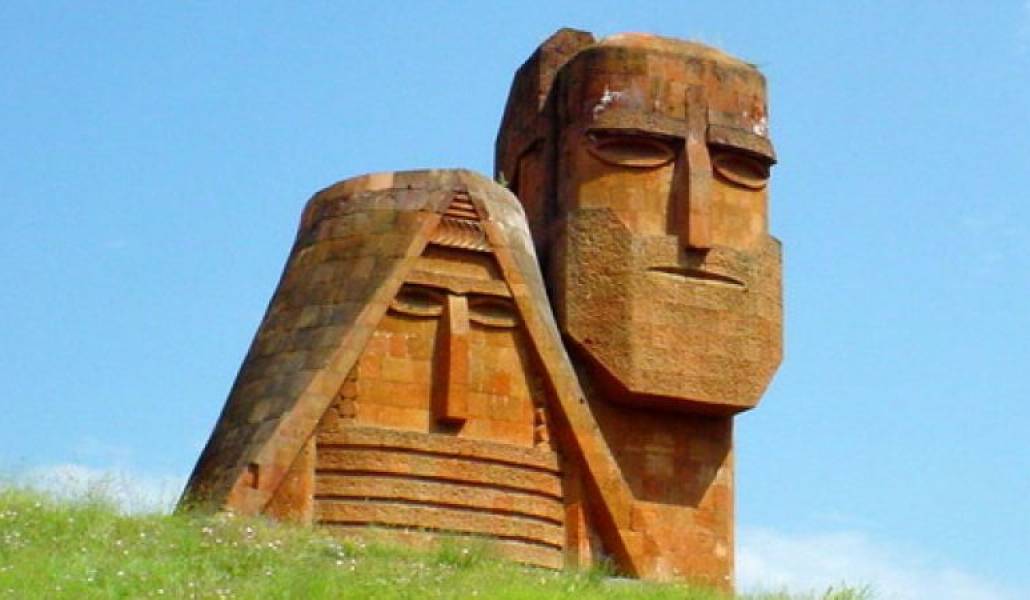
The icon of Saint Mary and Child Jesus in Ghazanchetsots Cathedral of Shushi challenges anthropology. In this picture the body and the left hand of Mary are too long.
 We Are Our Mountains sculpture is one of the most known works in Nagorno Karabakh. It is more known as the statue of Dedo and Babo. In this sculpture the mouth of the woman is closed, which symbolizes humbleness.
Director of the History Museum says that gender equality will never become an issue in Karabakh. Woman is the landlady of the house before the arrival of the man, “But when the man comes, she says everybody to remain silent.”
Instead, one can see pictures of wholly naked women in the gallery of Shushi. This hall receives few visitors.
We Are Our Mountains sculpture is one of the most known works in Nagorno Karabakh. It is more known as the statue of Dedo and Babo. In this sculpture the mouth of the woman is closed, which symbolizes humbleness.
Director of the History Museum says that gender equality will never become an issue in Karabakh. Woman is the landlady of the house before the arrival of the man, “But when the man comes, she says everybody to remain silent.”
Instead, one can see pictures of wholly naked women in the gallery of Shushi. This hall receives few visitors.
 Togh village, which is a few hundred meters far from Fizuli, tells much about this land full of contradictions; here insurance service is provided in a dilapidated building.
Togh village, which is a few hundred meters far from Fizuli, tells much about this land full of contradictions; here insurance service is provided in a dilapidated building.
 These gates doesn’t have much to tell, though, famous wine of Karabakh, ‘Kataro’, is made inside these gates. The Director says that ‘Kataro’ is a result of nervousness, “They purveyed grape at AMD 65, and we got angry and started making wine ourselves.” Togh village has its own means for perpetuating the memory; every person entering the village should know that Vrezh and Armencho died young.
These gates doesn’t have much to tell, though, famous wine of Karabakh, ‘Kataro’, is made inside these gates. The Director says that ‘Kataro’ is a result of nervousness, “They purveyed grape at AMD 65, and we got angry and started making wine ourselves.” Togh village has its own means for perpetuating the memory; every person entering the village should know that Vrezh and Armencho died young.
 Commercial posters on Azatamartikneri Street in Stepanakert show Karabakh salesmen’s fidelity to foreign language; they are ready to present foreign words in Armenian but without translating.
Commercial posters on Azatamartikneri Street in Stepanakert show Karabakh salesmen’s fidelity to foreign language; they are ready to present foreign words in Armenian but without translating.

 Though, this fidelity doesn’t refer only to Russian words. The owner of this shop refused to translate the word ‘Lions’.
Though, this fidelity doesn’t refer only to Russian words. The owner of this shop refused to translate the word ‘Lions’.
 The most popular sight of Artsakh, Hunot Canyon, still has a Russian-sounding name, ‘Zontikner’ (Umbrellas).
This box is also a small hint of linguistic generosity, which reminds that in Artsakh shoes from “Ottoman shoes” brand were sold. Their box hasn’t lost its usage for an Artsakh salesman.
The most popular sight of Artsakh, Hunot Canyon, still has a Russian-sounding name, ‘Zontikner’ (Umbrellas).
This box is also a small hint of linguistic generosity, which reminds that in Artsakh shoes from “Ottoman shoes” brand were sold. Their box hasn’t lost its usage for an Artsakh salesman.

